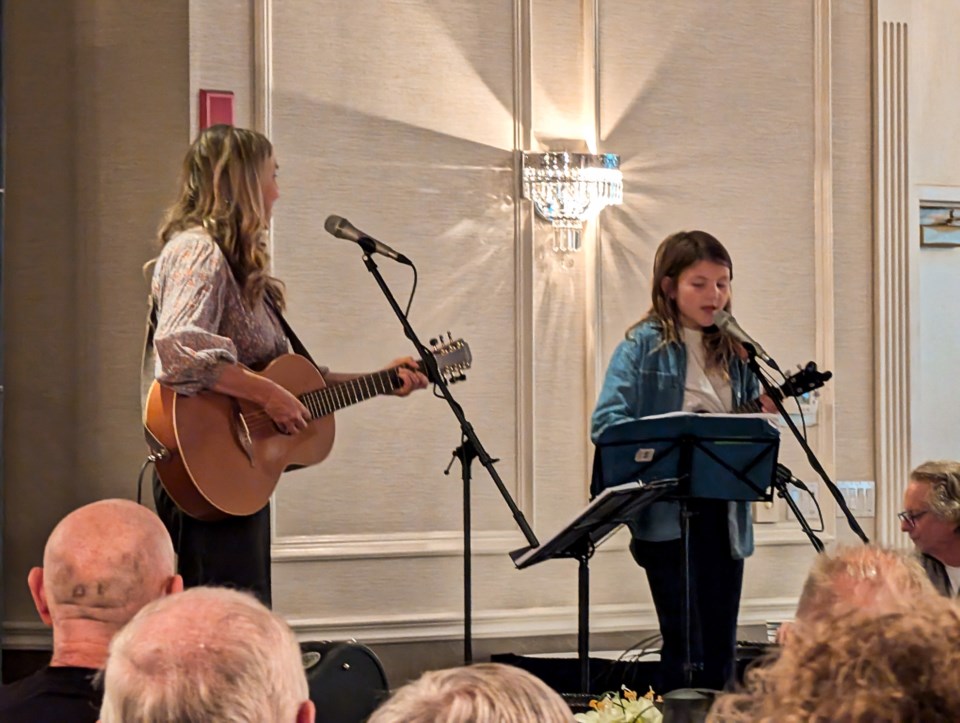At the annual Mayor’s Breakfast Thursday morning, Martin Ritsma talked with his usual folksy charm while welcoming the gathered audience to the event. He cracked jokes, thanked people for their contributions to various things, and got to marvel as his nine-year-old granddaughter, Frances Rose, jammed with Dayna Manning on the stage.
He then let his guard down, just a little bit, to welcome the team from Shelterlink to the stage to share the important work they do behind the scenes with local youth that are experiencing homelessness and other struggles associated with it.
Having been associated with Shelterlink for 23 years, Ritsma’s connection to them is deeply personal – evidenced by the relationship he has with Will Mason, one of the speakers. By putting Shelterlink in this particular spotlight with this audience, it was a chance to truly show people the work they’re doing and the long-term impact it has.
“There were some people at the breakfast today that had never heard of Shelterlink or what they do, and I believe it’s the role of this event to bring agencies like that forward so people can learn how important they are,” the mayor said. “For me, personally, my involvement with Shelterlink goes back a long way and being involved with them means I get to share stories like (Mason’s). I had a friend here I hadn’t seen since I was in Grade 12, and he reminded me of what my situation was like and how dirt poor I was back then and that it was the community that came around and helped. But to me, this speaks volumes about what Stratford is all about.”
Cate Trudeau, Shelterlink’s executive director, spoke about their vision of making homelessness rare, brief and non-recurring and how they’ve linked their mission to that statement.
“We make that happen with our outreach services, our shelter services,” she said. “Shelter stays are very quick and we can reconnect people back to the community as quickly as possible. Making sure they’re non-recurring means having those supports that makes sure we don’t see youth come back into the homelessness system or into a shelter system because of lack of support.”
Trudeau said Shelterlink tracked those recurrences and the data showed they are at 19 youth who have come back. It’s a number they want to see shrink, and with the addition of a new post-shelter support worker they’ve just implemented, Trudeau thinks they can make that happen. As Natalie Weinheimer – Shelterlink’s development and community engagement manager – said in her remarks, the youth who come to them for help are more than their circumstances. It’s a sentiment that Trudeau said gets amplified when put into proper perspective.
“I think in the grand journey of life, this is a very brief moment for people who are in this situation,” she said. “The quicker and briefer we can make that for them, the better. I’ve met lots of managers and other adults in the community that did have a time in their youth that they needed us or that they were homeless and it didn’t define them. That wasn’t the significant marker of their lives, and I think that’s what we really want to emphasize. This is a very quick, brief moment in their lives and we can support them and they can move on and thrive.”



